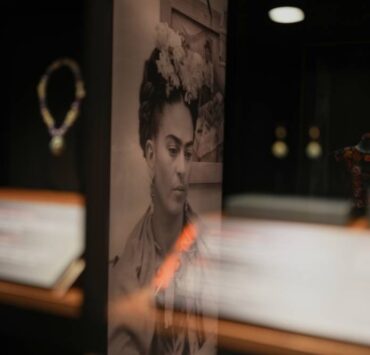Coming of age in the Philippines

I am turning 31 soon, and at this point, people might tell me that I am about to be dropped from the calendar—that is, because a calendar month only goes up to 31! At this age, I feel “more adult” than I was at 21, so whenever I look at a 21-year-old, especially pictures of myself at that age, I cannot help but think: “They are still so childlike!”
In times long past, we used to have rituals that distinguished the threshold between child and adult. This is called a “rite of passage,” because a person transitions from one status to another. This means that they get more benefits as part of the adult world, but it also means that they have more responsibilities. Around the time a person turns 18 to 21, they can now buy alcohol and cigarettes, enter a casino, and watch R-rated movies.
But they are usually also expected to get a job, pay taxes, get married, and eventually, start a family. They are expected to be able to make clear decisions. Yes, there are benefits, but also responsibilities.
Meaningful life transitions
Many Indigenous cultures around the world still have their own rites of passage, but for urbanized and globalized people, these rituals have become superficial performances of meaningful life transitions. If anything, many Indigenous traditions are at risk of extinction precisely because of how Westernized we are becoming—through influences from Hollywood and our social media feeds!
Religions have been very consistent with these rites. In Catholicism, the Rite of Confirmation that children go through at age 12 is meant to be a meaningful transition from growing up in a Catholic household to actually accepting Catholicism as their personal faith.
But not everyone is Catholic, and not everyone finds Confirmation meaningful. I was raised Catholic, and, sorry, I do not even remember my own Confirmation.
Filipino rites of passage
So it got me thinking: What are some rites of passage we still practice today? What rituals do we actually do in our modern-day lives that most Filipinos are expected to celebrate? (Though this does not mean that every Filipino will go through it the same way, as there might be some societal pressures to do it.)
First, I immediately think of a girl’s debut in the Philippines, which happens when she turns 18. It’s supposed to celebrate the blossoming of a woman, but this might also reinforce old ideas of “femininity” (pagkababae). Of course, it is also an avenue for a family to showcase their wealth. Imagine all the magnificent debuts you have been to, and think about how much one of those costs—sometimes it can be just as expensive as a wedding!
After all, the suppliers and locations are usually the same. In a way, blowing candles on birthdays is a rite of passage, but this just marks the completion of a year. A debut is the clear transition from child to adult.
But even when we agree that 18 is technically a legal adult, older adults know that it is still too young to start engaging in “adult things.” I cannot think of an equivalent of a debut for boys, even when they turn 21, but I do think of tuli (circumcision) as a rite of passage.
When I was much younger, there was a stigma attached to the uncircumcised (supot), implying that they are ignorant about the ways of the world because of their rawness. Being supot is like being an unripe fruit that still has its covering (“supot” is also the term for a plastic bag). But if we think about the mental, physical, and social development of children, the age of circumcision is too young to actually call them a “man,” and yet, older men will say, “Lalaki ka na!”
Markers of maturity
Apart from these two, most Filipinos might consider graduating a rite of passage, whether that is from senior high school or from college. This is probably because we still hold the idea that education is the key to a good life, and most jobs (even those that do not need the complexity of a college degree) still expect applicants to have graduated from college.
After college, the emerging adult begins to navigate the “real world” by joining the workforce and becoming serious tax-paying members of society.
And yet, writing this as a 30-year-old, I still feel like I did not get a true rite of passage. I was too young to find any meaning in tuli or the Rite of Confirmation, and, as a man, I did not get a debut.
Yes, I graduated from university, and I eventually graduated again after completing my master’s degree. But these are just completions of programs, not necessarily markers of maturity. I had to develop in my own way as I navigated the very strange adult world—what we call “adulting,” which sounds like something you are trying to do, not necessarily something you are doing well.
Maybe this is why so many adults are still “isip bata,” and why many men still carry a very childish, “toxic” masculinity. We need serious rituals—events that really mark a level of maturity and allow people to be functioning, responsible members of a larger society.
For now, most of what we have is very kaniya-kaniya. There are barely any more masters to learn from or meaningful guidebooks that can help us survive and thrive. We need better parental figures—or, since we are the new adults, we must take it upon ourselves to be the adults that would have really helped our younger selves.

















